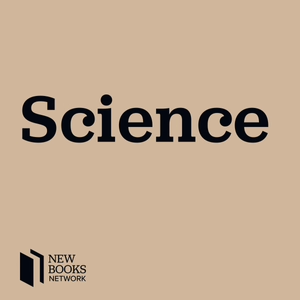
Examining the Socioeconomic Benefits of the International Space Station
03/27/20 • 87 min
Secure World Foundation and the ISS National Labs co-hosted the first in a two-event series, one in the San Francisco Bay area and one in Washington, DC. This series is designed to highlight and examine the socioeconomic benefits of the International Space Station. Global efforts like the Sustainable Development Goals are benefiting from work being done on ISS but these activities have received little attention.
Speakers comprised a diverse group of ISS National Lab partners, data end-users, and government representatives who spoke to unique work that’s being done, the observed or expected benefit on Earth, and the importance of maintaining the space environment to support this work.
Secure World Foundation and the ISS National Labs co-hosted the first in a two-event series, one in the San Francisco Bay area and one in Washington, DC. This series is designed to highlight and examine the socioeconomic benefits of the International Space Station. Global efforts like the Sustainable Development Goals are benefiting from work being done on ISS but these activities have received little attention.
Speakers comprised a diverse group of ISS National Lab partners, data end-users, and government representatives who spoke to unique work that’s being done, the observed or expected benefit on Earth, and the importance of maintaining the space environment to support this work.
Previous Episode

Is Spectrum Shifting the Playing Field for the Weather Enterprise?
Many earth scientists unknowingly use special allocations of spectrum that are reserved for the collection and transmission of hydrometeorological data, particularly involving weather satellites. These allocations, for example, provide rebroadcasts of geostationary weather satellite imagery, transmit National Oceanic and Atmospheric Administration (NOAA) data to academic and industry partners, and enable passive microwave sensing of weather systems over the ocean. Data received through these allocations are paramount to achieving the best possible timeliness and quality of weather forecasts and warnings. Satellite observations of Earth’s atmosphere are a major contributor to weather and climate research, and improve the predictions from numerical weather prediction models.
However, the spectrum allocations for meteorological observations and earth exploration is potentially becoming threatened from proposals to deploy 5G and other advanced networks in adjacent bands, introducing risk and uncertainty for longstanding remote sensing applications. Because scientists and other users of weather data do not typically follow the complex and technical government spectrum proceedings, there is limited advocacy from those who could be impacted most and could best convey the true value of certain spectrum allocations for science.
In order to illustrate the wide range of potential impacts to weather satellite observations and timely earth science data transmissions, this panel, at the 2019 Joint Satellite Conference, discussed various spectrum proposals and how they might impact earth science research and users of earth-observing satellite imagery and products. The panel will also explain the regulatory environment and challenges to a brokered discussion on the relative merits of competing needs for spectrum allocations. It was an opportunity to share information with an international audience of satellite experts across government, academic and private sector audiences. The timing occurred shortly after the close in public comments to the FCC on the NPRM related to GOES real time data access (1675-1680 MHz) and just prior to the start of the World Radio Conference where discussions will include the rules around the global deployment of 5G technologies, including spectrum resources closely adjoining passive remote sensing observations for numerical weather prediction (especially near 23.8 GHz).
Speakers:
- Jordan Gerth, Physical Scientist, National Weather Service Office of Observations
- Ryan Terry, Director, Regulatory Licensing and Policy, Lockheed Martin Corporation
- Elliot Eichen, 2018-2019 IEEE-USA Congressional Fellow, and former Director of R&D, Verizon Communications
- Dave Lubar, Senior Project Leader, Civil Spectrum Management, Civil Systems Group, The Aerospace Corporation
Session Co-chairs:
- Renee Leduc, Founder & Principal, Narayan Strategy
- Krystal Wilson, Director of Space Applications Programs, Secure World Foundation
More details, can be found at the event page on the SWF website.
Next Episode

Capacity-building for Space Sustainability: The role of government, industry and civil society
What are the most pressing challenges confronting governments, industry and civil society in terms of building capacity for implementing international space sustainability guidelines, and what steps should each of these three sectors prioritize to build such capacity? This panel of leading international experts shared their thoughts on how governments, industry and civil society can jointly build capacity in the space community to support the implementation of the international guidelines for space sustainability recently adopted by the UN. For more background information on these guidelines, see our SWF Factsheet.
Panelists
Government
- Niklas Hedman, UN Office for Outer Space Affairs, Austria
- Andre Rypl, Ministry of Foreign Affairs, Brazil
- Keren Shahar, Ministry of Foreign Affairs, Israel
- David Turner, Department of State, United States
- Aarti Holla-Maini, EMEA Satellite Operators Association, Belgium
- Therese Jones, Satellite Industry Association, United States
- Daniel Oltrogge, Space Safety Coalition, United States
- Charity Weeden, Astroscale, United States
- David Kendall, Outer Space Institute, Canada
- Jean-Jacques Tortora, European Space Policy Institute, Austria
- Guoyu Wang, Beijing Institute of Technology, China
- Danielle Wood, Massachusetts Institute of Technology, United States
If you like this episode you’ll love
Episode Comments
Generate a badge
Get a badge for your website that links back to this episode
<a href="https://goodpods.com/podcasts/the-secure-world-foundation-podcast-420604/examining-the-socioeconomic-benefits-of-the-international-space-statio-58227741"> <img src="https://storage.googleapis.com/goodpods-images-bucket/badges/generic-badge-1.svg" alt="listen to examining the socioeconomic benefits of the international space station on goodpods" style="width: 225px" /> </a>
Copy




